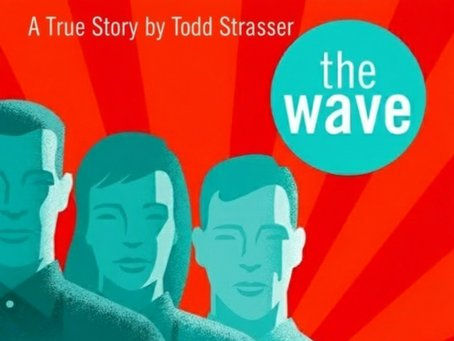top of page
Balanced Learning Resources
Lesson Plans
Search
High School


The Soviet Refusenik Movement – Analysis of a Social Justice Movement
Students will explore the Soviet Jewry Freedom Movement through two powerful videos: U.S. Representative John Lewis Speaking for Soviet Jews (1987) and The Soviet Jewry Freedom Movement (Unpacked). By examining this historical social justice movement, students will gain insight into the broader themes of advocacy, solidarity, and global human rights. Using a set of 10 criteria, students will critically analyze the movement’s structure, impact, and legacy, applying these same


Velvet Revolution (Czechoslovakia, 1989) - Analysis of a Social Justice Movement
Students apply 10 objective criteria to analyze a social justice movement that is widely noted for its non‑violent, dignity‑centered tactics: the Velvet Revolution in Czechoslovakia (Nov–Dec 1989). Using short videos and primary‑source snippets, learners test whether the movement’s goals, methods, and outcomes align with genuine social justice for all, or reveal red flags. By design, this lesson is based on students’ observations of video content and teacher‑neutrality: the 1


Dr. Martin Luther King Jr. & the March on Washington - Analysis of a Social Justice Movement
Students will examine the civil rights movement through two key films: Martin Luther King Jr.’s 1963 “I Have a Dream” speech and The March (1964), a restored documentary on the March on Washington. After viewing, students will use 10 criteria to evaluate whether the movement meets the standards of a true social justice movement—analyzing its stated goals and actions, commitment to equity and human dignity, openness to dissent, use of nonviolence, reliance on truth over propag


Analysis of a Current Movement: Free Palestine Protests
Grade Level: 9-10 Duration of video 1: 5 minutes Themes: Methods vs. slogans, Non-violence & human dignity, Media literacy & misinformation, Inclusion & democratic participation, civil rights and dignity for all people Description: This lesson invites students to evaluate the Free Palestine Movement’s protests through 10 Criteria to analyze a Social Justice Movement. Students will examine activist messaging that uses social justice language. By applying the 10 Criteria Frame


THE WAVE: Nazism: Real Social Justice vs. Hateful Hidden Agendas, Learning to Tell the Difference Between Unity and Division
Grade Level: 8–12 Duration of video 1: 7 minutes, 28 seconds Duration of video 2: 44 minutes Themes: Social psychology, Holocaust awareness, Nazism, World War II, media literacy and propaganda, social justice vs. hate movements, active citizenship, moral responsibility Description: This lesson begins with The Path to Nazi Genocide , a short introductory documentary that examines how the Nazis systematically excluded Jews from society and justified escalating violence. Stude


THE RUSSIAN REVOLUTION SIMPLIFIED AND EXPLAINED
Explore our lesson plan for grades 8-12 on the Russian Revolution. Featuring a concise video, key events, and critical analysis of its social justice impact, this resource includes objectives, discussion questions, and activities to foster critical thinking and empathy.


Iranian Revolution, Shah’s Exit, and Global Terror
Grades: 10–12 Duration of Video 1: 14 minutes, 55 seconds Duration of Video 2: 1 Minute, 11 seconds Duration of Video 3: 3 Minutes, 4...


THE AMERICAN REVOLUTION – America's Commitment To Human Rights And Self-Correction
In this lesson, students will explore the contradictions of the American Revolution, particularly regarding slavery and inequality, and how these flaws led to movements for abolition, women’s suffrage, and civil rights.


LGBTQIA+ and Women's Rights in the U.S. and EU
This lesson introduces students to how the United States and European Union have worked to protect and advance the rights of women and LGBTQIA+ individuals. Students will explore historical milestones, legal protections, and ongoing struggles for equality, while learning why these rights are fundamental to free and fair societies.


Hidden Letters - Language, Power, and the Voices of Chinese Women
Hidden Letters is a haunting and lyrical documentary that uncovers the secret language of Nüshu—a script invented and passed down in whispers among generations of Chinese women, who, confined by patriarchal norms and silenced by tradition, found solace in each other through the written word. In a world where women were forbidden to learn or express themselves freely, Nüshu became more than a language—it was a lifeline.


LGBTQIA+ Rights and Representation in Today's China
This mini documentary "LGBTQ+ in Today's China" explores the growing visibility and representation of LGBTQIA+ individuals in Chinese society, focusing on shifting public attitudes, media portrayal, and inclusive marketing campaigns. It highlights the role of social media in community-building despite ongoing censorship and traditional cultural challenges.


LGBTQIA+ AND WOMEN'S RIGHTS AND EQUALITY IN THE MIDDLE EAST
In many parts of the Middle East, LGBTQIA+ individuals face severe discrimination, with same-sex relationships criminalized in some countries and punishable by imprisonment or even death, forcing many to hide their identities. Despite these dangers, activists and allies continue to push for legal reforms and safe spaces.


RBG: A Documentary Exploring the Life and Legacy of Ruth Bader Ginsburg
In this lesson, students will watch the informative and endearing documentary RBG (2018) and reflect on the life and career of Supreme Court Justice Ruth Bader Ginsburg (1933-2020), a Jewish American. Students will explore her contributions to gender equality and civil rights and discuss how her legacy continues to influence the American legal system and our society today. Through this lesson, students will analyze the role of the judiciary in shaping laws and societal change


American Thought Leaders: Black Christians Enslaved in Africa, an Interview With Simon Deng and Charles Jacobs
This moving interview on American Thought Leaders introduces two modern day heroes - Simon Deng and Charles Jacobs - who discuss the ongoing struggle against slavery, human trafficking, and genocide in Africa, and the impact of Islamist extremism. Simon Deng, formerly enslaved, shares his personal story of escape and the horrors of slavery in Sudan. He and Charles Jacobs, who helped free tens of thousands of slaves in Sudan, highlight the international community's lack of res


I Hated Them Until I Met Them: Loay Al-Shareef's Personal Story
Loay Al-Shareef is a linguist, educator, and peace activist known for his efforts in promoting Arab-Jewish coexistence and combating misinformation. Raised in Saudi Arabia, he was taught anti-Israel and antisemitic narratives. However, after studying in France and living with a Jewish family, he realized that much of what he had been taught was false. This transformation led him to advocate for truth, fight Jew-hatred, and educate others about historical facts and shared Arab


The Son of Hamas Exposes The Truth On Israel - Gaza: Mosab Hassan Yousef with Douglas Murray
This lesson focuses on the perspectives and experiences of Mosab Hassan Yousef, a former Hamas member who later became an informant for Israel. Students will learn about the complexities of the Israeli-Palestinian conflict, particularly through Yousef's perspective. The lesson will also address common misconceptions and the political narrative of genocide, particularly the claims surrounding the Gaza conflict.


Asian American Activists in the Civil Rights Movement
The fight for justice has never been fought alone. Asian American activists worked alongside Black, Latinx, and Indigenous leaders to challenge oppression and demand equality. Their contributions remain inspiring and relevant today, offering powerful lessons on solidarity, resilience, and social change.


The Young Lords Grassroots Activism and Social Change - Fighting for Justice, Then and Now
Grade Level: 6-12 Duration of video: Under 7 minutes Themes: Multiracial and Multicultural Alliances, Solidarity, Advocacy Image: March...


60 Minutes on Sir Nicholas Winton
This is a "60 Minutes" episode that focuses on the story of Sir Nicholas Winton, a British humanitarian who famously rescued hundreds of Jewish children from Nazi-occupied Czechoslovakia just before World War II, often referred to as "Nicky's Children." Meet Sir Winton and the people he saved!


Schindler’s List
Schindler’s List is a powerful film by Steven Spielberg that tells the true story of Oskar Schindler, a German businessman who saved over 1,100 Jewish people during the Holocaust by employing them in his factory. The movie shows the horrors of the Holocaust and the impact one person can make.
bottom of page
